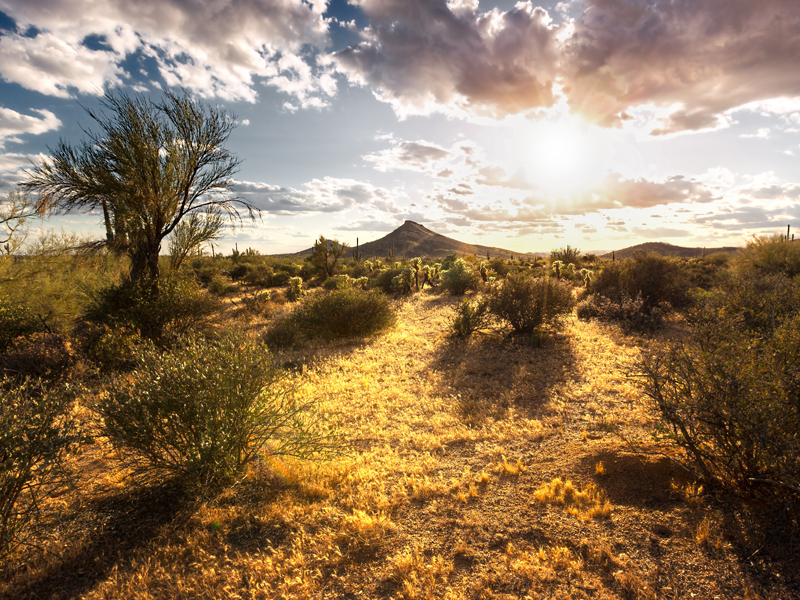The potential effects on plants and other organisms due to the decrease in human activity is a bit speculative right now. However, based on current knowledge, these are some possible effects that may be occurring. These represent likely positive human impacts on the environment while we are sequestered inside. Explore the likely benefits with Desert Botanical Garden!
- Nitrogen dioxide levels are decreasing due to significantly less vehicle traffic. Overtime, nitrogen dioxide is deposited in soils and “enriches’ them (nitrogen is a nutrient). The addition of soil nitrogen benefits some plants more than others, potentially altering competitive outcomes. For example, in some environments, nitrogen addition greatly benefits grasses, including nonnative species but not others.
- Ground level ozone levels are also decreasing. Phoenix had been the second highest U.S. city for ozone pollution behind Los Angeles. Now Phoenix’s ozone levels are near zero. This is important as the cellular functions of plants can be significantly and detrimentally affected by ground level ozone. We may see effects of less ozone with the health of our plants.
- Vehicles are major dispersers of invasive species. With decreased traffic there may be a decrease in the spread of invasive species, but it will take time to see this effect.
- The decrease in international travel may contribute to a decrease in plant poaching (e.g. cactus and other succulents).
- Roadsides are often areas that provide habitat for monarchs, other butterflies and additional pollinators. One study looked at the effect of traffic noise on monarch caterpillars by measuring their heart rates, and it found that the noise did have a stress effect on the caterpillars. Reduced traffic could be benefit monarchs and other roadside-dwelling pollinators.
- People are also getting outside more (as opposed, for example, to going to movies). There is at least a temporary increased appreciation for nature developing in the community.
- ***A cautionary note – More people around the world are turning to medicinal plants during the pandemic. A Garden staff member noted at a local famers market, there was an individual selling stinknet (Oncosiphon piluliferum) but calling it wild chamomile (several species of Matricaria). Be cautious when buying herbal remedies to ensure they are actually what they are listed As. Additionally, only buy plants that are ethically harvested and/or grown in a sustainable manner.
Lastly–and this is a significant takeaway–these temporary effects in the environment show that individual and collective actions can make a BIG impact on the environment for the good. Humans can have a positive impact on the environment by letting our surroundings rest – from us! This should encourage long-term actions and policies, because those will make an even bigger and more significant impact.
